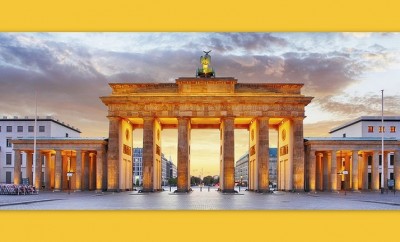
Brave New Britain
Boris Johnson’s U.K. appears more willing than the EU to adapt to a changing world.
Prime Minister Boris Johnson’s plane has had a patriotic makeover. RAF Voyager, the aircraft used by Johnson and the royal family for official travel, was painted red, white, and blue to “better represent the UK around the world.” The news brought some consternation over the use of $1 million of taxpayers’ money, as well as amusing comparisons with Austin Powers. For those convinced that a U.K. outside the European Union would be diminished on the world stage, Johnson’s jet is a technicolor illustration of the unserious, amateurish nature of this government’s ambition to use Brexit to forge a new “Global Britain.”
Yet something more interesting is happening. In a series of important decisions in recent months, one can discern the outlines of Global Britain. Taken together, these signs amount to an encouraging vision of Britain’s place in the world and a firm rebuttal to the fatalistic claims made about life outside of the EU.
The central foreign policy critique of Brexit was that outside a bloc of European nations, the U.K. would have no choice but to align with a superpower, either the United States or China. In other words, what it gained in sovereignty, it would lose in real-world influence. A recent New York Times story typified the view: “With rivalry and antagonism between China and the West on the rise, Britain as a free agent will be caught uncomfortably in between, constantly forced to choose sides in a post-pandemic world.” Ignoring the nonsensical description of Britain—a core Western power—as in any way “in between” China and the West, newly independent Britain hardly seems to be slavishly in hock to any major power.
When President Donald Trump announced his intention to invite Russia back into the G7 last month, Johnson was the first to rule the move out. Without equivocation, the prime minister’s spokesperson made clear that the U.K. would veto Vladimir Putin’s return to the fold. In addition to stepping out of America’s shadow on Russia, Britain has toughened its stance on China. The “golden era” of Sino-British relations—proclaimed by then-prime minister David Cameron when Xi Jinping visited the U.K. in 2015—is over. Instead, Johnson has launched “project defend,” a review of the U.K.’s vulnerabilities to potentially hostile foreign governments. China is at the top of that list. The British government also recently announced plans to downgrade Huawei’s controversial role in the country’s 5G network and wants to launch a new club of democracies. The “D10” would comprise the G7—plus Australia, South Korea, and India—and would help invest in strategically important technologies, such as 5G, and reduce reliance on China. This U.K.-led initiative could even prove the basis for wider cooperation and a multilateral counterbalance to China.
Συνέχεια ανάγνωσης εδώ
Πηγή: city-journal.org




